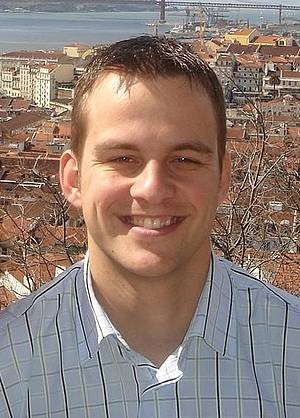Clinical Reasoning for Manual Therapy in Headaches: An Evidence-Based Approach
6th & 7th August 2016 at Fox Point, WICourse Description
This hands-on 2-day (16 hr) course will provide participants with an evidence based approach to the evaluation and treatment of headache patients, particularly tension type and cervicogenic. It will include a comprehensive presentation on the most recent findings by leading researchers including Gwen Jull from the University of Queensland, Australia and César Fernández-de-las-Peñas. Topics will include the efficacy of manual therapy, sensory and motor control impairments, neurophysiological changes in the nociceptive system and descending inhibitory systems, as well as recent evidence showing the presence of cortical changes in the brainstem of patients with headaches. Findings will be summarized to demonstrate the effectiveness of a new multisystem approach to the evaluation, treatment and management of patients with headaches. Areas of focus will include muscular trigger points, neural mechano-sensitivity, cervical and thoracic spine dysfunctions, and pain inhibition with repercussion on the “pain neuromatrix” of the brainstem.
This course will bring anatomical, biomechanical, neurophysiological headache treatment elements together in a clinically relevant way. It is appropriate for providers of all types who work with headache patients.
Course Objectives
- Critically evaluate evidence for the clinical treatment of tension type, cervicogenic, and migraine headaches
- Learn clear and concise subjective evaluation skills for headache patients
- Learn how to generate a working hypothesis based on structures involved, the presentation and the behavior of the pain, and the functional repercussion on patient lifestyle
- Plan and conduct objective examination of areas implicated by the working hypothesis
- Plan optimal courses of treatment using orthopedic manual therapy, with special emphasis on neurophysiological aspects
- Demonstrate clinical application of muscle, joint and neural approaches with emphasis on adaptations in the “pain neuromatrix” of the brainstem
About the Instructor

Dr. Fernández-de-las-Peñas has published around 300 publications and he is the first author of approximately 150 of them. The most relevant topics of his research focus on chronic pain including neck pain, headaches, lateral epicondylalgia, carpal tunnel syndrome, fibromyalgia syndrome and neuro-physiological effects of manual therapy. His clinical research is mainly concentrated on biomedical sciences within neuroscience. He has participated in 60 conferences with related published proceedings and has given several lectures at national and international meetings/workshops /seminars.
Course Layout
| Day 1 | |
| 08:30 – 08:35 | Welcome & Intro |
| 08:35 – 09:05 | The problem of headache: The pain neuromatrix |
| 09:05 – 09:30 | Clinical presentation of tension type, cervicogenic headache and migraine |
| 09:30 – 10:30 | Sensitization mechanisms in headaches and chronic pain |
| 10:30 – 10:45 | Break |
| 10:45 – 11.30 | Cervical and thoracic spine and head pain: An Evidence-Based Approach |
| 11:30 – 13:00 | Lab: Manual exploration of cervical spine dysfunction |
| 13:00 – 13:30 | Lunch |
| 13:30 – 14:00 | Manual therapy for cervical-thoracic spine: Evidence-Based Approach |
| 14:00 – 16:00 | Lab: Joint mobilization/manipulation of the cervical and thoracic spine |
| 16:00 – 17:00 | Lab: Motor control impairments and exercise for headaches |
| Day 2 | |
| 08:30 – 08:40 | Review and Q |
| 08:40 – 09:30 | Myofascial pain and referred pain to the head: Research in headache |
| 09:30 – 10:30 | Clinical and neurophysiological presentation of trigger points: Evidence-Based Approach |
| 10:30 – 11:00 | Management of trigger points for headache: Evidence-Based Approach |
| 11:00 – 11:15 | Break |
| 11:15 – 12:00 | Lab: Clinical examinations of muscle trigger points of the head and neck |
| 12:00 – 13:30 | Lab: Manual therapies for muscle trigger points, including exercises |
| 13:30 – 14:00 | Lunch |
| 14:00 – 16:30 | Lab: Dry needling for head and neck muscle trigger points |
| Summary and Questions |
